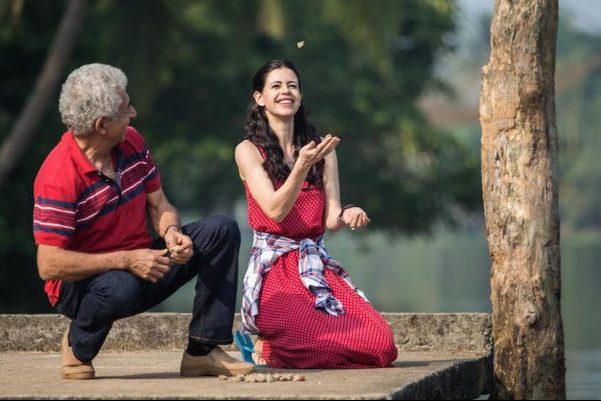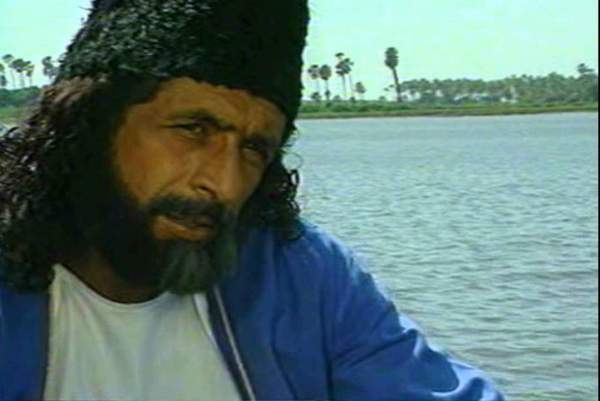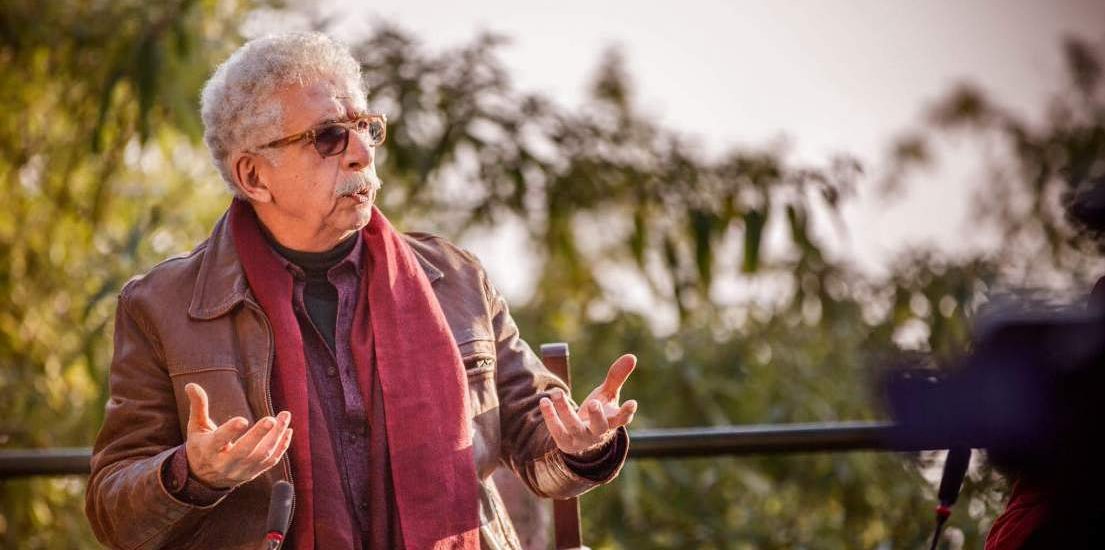Getting more interesting parts now than I did as a young man: Naseeruddin Shah
Veteran actor Naseeruddin Shah had enthralled us with every effortless role that he has played in his five decade long journey in Hindi cinema. He bestowed a similar charm when he came to the hills last weekend to be part of the 5th Dharamshala International Film Festival. While addressing the media and later in a session with Rajeev Masand, he shared his views on a variety of subjects. Here are excerpts.

Naseeruddin Shah
As someone who completes 50 years in acting, what motivates you as an actor in cinema and the theatre?
It starts with fun, as any young boy or girl who has acted on stage and has been applauded would know. And then it enters into the realm of labor. Once you have conquered that phase of boredom, irritation, learning and having to master things, it becomes fun all over again. It is not the applause or anything that I am talking about, it is the feeling of having got across. I have always had a problem with that. I was an introvert kid. I had a problem with my own skin and didn’t have many friends. I didn’t like people and was terrified of approaching strangers. Some of it still remains with me but most of it has gone. But to me acting was a release. And being in theatre has provided me with not just great joy but also with an education. All my reading started with the reading of plays and then I went on to read other stuff. My understanding of people, world and politics is all because of my association with theatre.
In a recent interview, you said that you cannot have a conversation about acting with practically anybody from the industry.
I have been reflecting on that statement and I regret having said it as it appears terribly arrogant. I did not mean that. What I meant was that I’ve met very few other actors who are interested to talk about it. But it consumes me. I have very little else to talk about. I hate the sitting around and gossiping about things that happened on any set or the backbiting. I would rather talk about work. To me the enjoyment is to talk about the scenes. Hindi commercial movies are one never-ending picnic and you are supposed to treat them like that.
I realized that there is not much difference in Hollywood and the B-world – just that they have more money and better taste
Has your opinion of popular Hindi movies changed with time as you have now worked with a lot of young filmmakers?
I enjoyed doing that one scene in Zoya’s (Akhtar, Director) film and was really moved by that. There have been movies that I have enjoyed and others I haven’t – it does not necessarily mean that the ones that have been commercial have been hateful and the artistic have been enjoyable. Some of those have been misery as well.
But would you say that the best parts for actors your age are coming to you?
Yes, I’m getting a lot of interesting roles. Actually I’m getting a lot more interesting parts now than I did as a young man. I’m still being offered a lot of work and it is great.

With Kalki Koechlin in a still from Waiting
Waiting was one such unconventional and moving story. The young breed of actors are doing some really brilliant work. Isn’t it an interesting phase for Indian Cinema?
No doubt it is exciting but equally exciting were the 70s when Shyam Benegal, Govind Nihalani, Ketan Mehta, Saeez Mirza etc. were at their peak. We all thought that the wave is going to change a lot of things. So it is premature to celebrate, but at the same time what you are saying is also right. All these youngsters are coming up with great stuff now with movies that are not bound by those old formulas. And not just films, but also young theatre people are trying to write plays about issues that matter to them instead of sitting in an air-conditioned room and writing their scripts. They are writing plays which are topical and about issues that bother them. Hopefully there will be some kind of improvement but what do you do with the audience who is addicted to rubbish and can’t do without it. They have only been fed that and now they believe that they like it. Kids today hesitate to watch a black and white Charlie Chaplin movie. If only they see, they’ll know the greatness of it.
How do you go about choosing your films?
Sometimes it is the money, sometimes it is the desire to be part of something which will be fun to do and fun to watch. Sometimes despite the money they are neither fun to do or watch. But then one makes mistakes.
Hindi commercial movies are one never-ending picnic and you are supposed to treat them like that
Actors like Irrfan Khan and Nawazuddin Siddiqui seem to have found a balance between commercial and art films. Do you feel it is because the times have changed?
They are both far more skillful actors than I was. Nawaz and Irrfan particularly are outstanding. Nawaz has succeeded in both kinds of movies. It remains to be seen what the industry makes of actors like him. I’m very curious to see what Nawaz’s future holds. I love him and I think he is great. But I’m really interested to see what parts the industry offers me. And the same is the case with Irrfan who also has international success waiting for him, which is just great.
That is something you pursued but not hard enough?
I never pursued it. I knew that my being born in India is not a mistake of nature. My job is here and this is where I belong. When I was a kid, I thought of going to England to study acting. I couldn’t go because I couldn’t afford it as first you had to go on your own expense to audition and so on. I’m glad I didn’t. If I had, I would have ended up like Saeed Jaffrey or Zia Mohyeddin who did work for many years but never quite got the recognition that they deserved. I aspired to the quality of work that I saw actors like Spencer Tracy or Paul Muni or others doing, not the kind of acting that I saw in Indian movies. Which is why I never found Indian movies fascinating as much as I found those movies.
Then of course I discovered French and Japanese movies. A whole new world opened up for me. I dreamt of playing the cowboy or the old man in the sea but I never actively pursued it because I knew that my job is here. And luckily I was right because when I appeared on the scenes in 1975, I was very lucky that actors like me who could look real were needed. So I got a lot of work. I was in the right place at the right time. I would have liked to work in Hollywood and that was satisfied by doing The League of Extraordinary Gentlemen. I realized that there is not much difference in Hollywood and the B-world – just that they have more money and better taste. I was curious to see how they make these monstrous 100 million dollar movies and I saw that. It is as boring as anything and I could hardly sit through the movie when I saw it. As I’ve worked in England and Paris on the stage, so all those dreams have kind of sublimated.

In a still from The League of Extraordinary Gentlemen
You were so close to landing the lead in Gandhi but when Ben Kingsley turned up, you thought there is no chance. Do you sometimes wonder where your career would have gone had you done that?
No. But I do wonder that had I taken up the role, what would have happened of Ben Kingsley. (laughs)
Nothing would have happened to my career even if I would have done that part or won an Oscar. I would have come right back to Mumbai and acted in Akhbar Khan’s Haadsa.
You have worked in Pakistani films such as Khuda Ke Liye and Zinda Bhaag. What did you make of the political uproar over Indian producers casting Pakistani actors?
I think it was absolutely uncalled for and unnecessary. The sad part is that if you say this, your patriotism is immediately questioned. The fact is that there was another young Pakistani actor in that film which nobody knows about. No fuss was made over him and the fuss was only made about the guy who was famous. It was craven of Karan Johar to submit like that when the government had offered full support. And I’m so glad that the army had refused this extortion money.
How should the creative arts be viewed in this sort of instance?
They should not be confused with politics. It does no one any good. Our animosity or hatred is not for the people of Pakistan. It is for their government, policies and their damn army. It is for the fact that our soldiers get killed. We don’t hate the people of Pakistan and they don’t hate the people of India either. How stupid would one be to question or doubt the army? Should it not be taken for granted that of course they are protecting us? Why does one has to say it all the time?
Nothing would have happened to my career even if I would have played Gandhi or won an Oscar
Coming to another aspect of your career, your serial Mirza Ghalib did really well on TV. Would you like to direct any such subject for television?
I tried to make movies once and would never do that again. As a film director, I was a big failure. Except with the dealings with my actors, in every other way I was a failure. I was lucky enough to have the best actors and they were supportive enough. I hoped to make a better movie but I couldn’t. In a film you are totally dependent on your director. Which is why I’m not being modest when I’m praised for Mirza Ghalib and any of those other works. I give more than 50% of the credit to the director and the actor. There have been many experiences of great actors failing in films.
My abilities are not towards that film direction. My abilities are directing plays in theatre. In theatre, I try to stage contemporary as well as ancient writings, which I think will be relevant today as well. Recently we did a play based on stories by a Canadian writer who used to write 100 years ago. Great writing is what is meaningful even in the generations to come.

In a still from Mirza Ghalib
But isn’t there a lack contemporary playwriting all over the nation?
In our country, playwriting and screenplay writing has not evolved. Look at our films that are called brilliant; in most cases their screenplays are stolen from somewhere. We have become so used to consuming that trash, that we even like it. Around 1930s, Hindi films turned from silent movies to talkies. Silent movies used to have Parsi actors and Marathi women who would look like Europeans. All these films used to be a copy of Hollywood films. When these films became talkies, these Parsi or European actors were of no use as they could not speak Urdu or Hindi. Films weren’t being made in Marathi.
The first talkie film, Alam Ara, was made in Urdu. So the films needed actors and they got them from Urdu theatre. Not just actors, but scene designers, choreographers, dancers, singers, musicians came into films. Theatre got finished then and even the writers got finished. And all those people brought their sensibilities of theatre into films. That is why screenplay writing couldn’t develop. If you watch all those films closely, all those talkie films appear to be some staged play. In fact the plays at that time used to have songs and dance in them and that is what appeared in the films. So far we haven’t managed to move away from that tradition. Our movies still stop without any reason and have songs and dances in them. This is my observation and the facts back it up. And those plays that used to be staged were of Shakespeare, Hamlet etc. All the clichés and formulas that our Hindi films still have are stolen from Shakespeare.
Great writing is what is meaningful even in the generations to come
What is the case with aspiring theatre artists?
All theatre aspirants who want to do theatre dream of doing plays that involves lakhs. And then they aren’t able to do theatre ever. The kind of theatre I believe in has only two things relevant – actor and the stage. One doesn’t need anything else. And this is the same thing that I try to explain to aspiring theatre students. I tell them to not wait for some rich man to produce Mughal-e-Azam for you. The real meaning of theatre is to communicate things. There should be a speaker and a listener. That is why storytelling is the oldest form of theatre and that is what we do on stage. Theatre can take place anywhere.
In fact the mediums are blurring now. Actors are acting on stage, movies, serials and digital platforms.
New talent will always be needed. In fact, there are many avenues now than when Om (Puri), Shabana (Azmi), Smita (Patil) or I started. Today for every message on a telephone, which tells you that this line is engaged, you need an actor. Earlier there was nothing but Doordarshan which would give you 15 rupees to appear in a play. The fact that the lines are blurring is a good thing. All actors should have experience of every medium as each of it has its own difficulties. It is good for an actor to confront those problems and tackle them.
Lastly, do you think audience building is something that we are not focusing on? Don’t we need more initiatives of building audience?
A lot of people are trying that. For instance there is the Dharamshala International Film Festival and then I know of a young man who is trying to start a festival in Lonavala. People have films clubs running in a place like Thane. It is not an easy habit to break. Hopefully they succeed.



